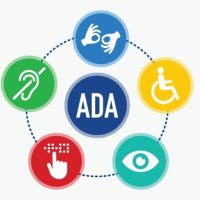Your Guide to Associational Discrimination Claims Under the ADA

The Americans With Disabilities Act (ADA) is a federal law that provides employment-based protections to disabled workers. Notably, the ADA also prohibits “associational discrimination.” It is unlawful for covered employers to discriminate against an employee because of his or her actual or perceived relationship with a disabled person. In this article, you will find an in-depth overview of associational discrimination claims under the ADA, including how the term is defined, who is covered by the law, and some common examples.
Associational Discrimination: Defined
Associational disability discrimination occurs when an individual is treated unfairly due to their relationship or association with a person who has a disability. It can arise in the context of employment. For example, a business may deny an opportunity to a job applicant or employee based on the (often incorrect) assumption that the worker will be excessively absent or less committed due to their caregiving responsibilities.
Understanding the Scope and Coverage Under the ADA
The ADA provides legal protection to employees against associational discrimination. Here are two key points that employers and employees in Florida should be aware of:
- ADA Applies to Employers With 15 or More Employees: Not all businesses or organizations in Florida are covered by the ADA. The law applies to employers with 15 or more total employees, including part-time workers.
- Protects Employees Based on Actual and Perceived Relationships/Associations: Associational discrimination protections apply to workers based on both actual and perceived relationships. Notably, no family relationship is required. Any relationship or association with a disabled person could be covered by the law.
Examples of Associational Disability Discrimination
Here are two examples of associational discrimination:
- Employee is a Parent Who is Caregiver for Disabled Child: Imagine that an employer is aware that a parent has a disabled child at home. That parent is the primary caregiver. If an employer denies a promotion based solely on that fact, that is associational discrimination. That assumption is not warranted.
- Job Applicant has a Spouse Who is Disabled: An employee with a disabled spouse might encounter discrimination if an employer becomes aware of their situation. The ADA bars an employer from making an assumption about caregiver requirements.
No Reasonable Accommodation Requirement for Associated Person
The ADA requires covered employers to make a good faith effort to find a reasonable accommodation for a disabled job applicant and/or employees. While the ADA bars associational disability discrimination, the law does not require an employer to make an accommodation for a worker who has a relationship/association with a disabled person. It is discrimination to assume that a parent will need extra leave time to care for a disabled child and to deny them a job opportunity on those grounds. However, the ADA does not actually require an employer to give an employee any extra accommodation because of their caregiving responsibilities.
Get Help With a Disability Discrimination Attorney in Florida Today
Associational discrimination claims are complicated. If you are an employer or an employee with any specific questions about an associational discrimination claim under the ADA, please do not hesitate to contact our Florida employment law attorney for help.

